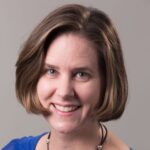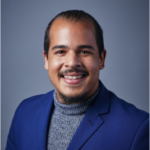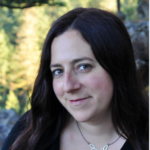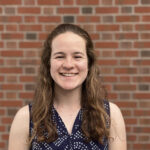
- This event has passed.
Webinar: Missing Pieces in Higher Education Climate Action Planning: Food, Reuse and Empowerment
February 14 @ 2:00 pm - 3:00 pm EST
Climate plans can help colleges and universities address climate concerns specific to the students, faculty and staff of that campus. Staff from the Center for Biological Diversity and GAIA will discuss the use of climate plans to build climate-resilient solutions around food systems, reuse / refill solutions, and gender empowerment. Research will be shared that summarizes the inclusion of these topics into campus and community climate plans and resources will be offered for others to build upon this work through practical policy and engagement recommendations.
In conjunction with consumption-based emissions inventories, reuse / refill systems have been largely excluded from climate plans. These systems offer an alternative to the current non-circular global supply chains that are draining valuable resources from the environment. Campuses have a unique opportunity to adequately evaluate the full scope of emissions being generated and to use reuse / refill systems as a ‘low-hanging fruit’ option to combat those increasing emissions.
Food is responsible for one-third of global greenhouse gas emissions, but it’s been largely left off the table of climate plans. Campuses can use climate plans to address food-related emissions while also increasing access to healthy diets and green spaces.
A commonly overlooked climate change mitigation and adaptation strategy is gender equality and empowerment initiatives such as universal access to modern family planning methods, comprehensive sexual education, menstrual equity, affordable reproductive healthcare and updated gender roles that allows for individuals to have agency and bodily autonomy over their bodies.
All three of these topics will be discussed.
For members: archived webinars on demand Upcoming webinars
Presenters
 |
Kelley Dennings, Campaigner, Center for Biological Diversity Kelley Dennings is a campaigner with the nonprofit Center for Biological Diversity where she develops and executes advocacy and outreach initiatives that address the connections between reproductive health, gender equity, endless growth and the climate and extinction crises. Her campaigns focus on rights-based solutions from voluntary family planning to the solidarity economy to address how the effects of patriarchy, capitalism and other systems of oppression affect people and the environment. She holds a bachelor’s degree in natural resources from N.C. State and a master’s degree in public health from the University of South Florida. |
 |
Marcel Howard, Zero Waste Program Manager, GAIA Marcel Howard (he/him) is the Zero Waste Program Manager – US/Canada for GAIA (Global Alliance for Incinerator Alternatives). As a biracial and LGBTQ+ working professional, Marcel has dedicated his life to dismantling white supremacy and anti-queer concepts within the broader environmental movement. Over the past eight years, he has become a thought leader and technical expert on climate change, environmental justice, and zero waste concepts throughout the US and Canada. Born and raised in a minority-majority community along the Chesapeake Bay in Southeast Virginia, Newport News, Marcel has always been deeply entrenched within the world of equity and justice. He joins GAIA with a Master’s in Environmental Policy from The New School and currently resides in the beautiful neighborhood of Harlem in New York City. Marcel helps expand GAIA’s work in U.S. federal policy spaces to develop zero-waste solutions and end policies bolstering incineration. |
 |
Stephanie Feldstein, Director, Center for Biological Diversity Stephanie (she/her) leads the Center’s work to highlight and address threats to endangered species and wild places from runaway human population growth and overconsumption. Previously Stephanie worked for Change.org, where she helped hundreds of people start and win online campaigns to protect wildlife. She holds a bachelor’s degree from the University of Michigan and has years of experience in organizing, outreach and communications, with a focus on animals and the environment. She is the author of The Animal Lover’s Guide to Changing the World (St. Martin’s Griffin, 2018). |
 |
Malia Becker, Associate Organizer, Center for Biological Diversity Malia Becker works at the Center for Biological Diversity leading creative outreach and organizing campaigns. She manages two campaigns focused on alternative economies and reproductive rights: Simplify the Holidays and Endangered Species Condoms. Before joining the Center, Malia worked in healthcare patient access and administration. She holds a bachelor’s degree from Macalester College in geography and public health. |